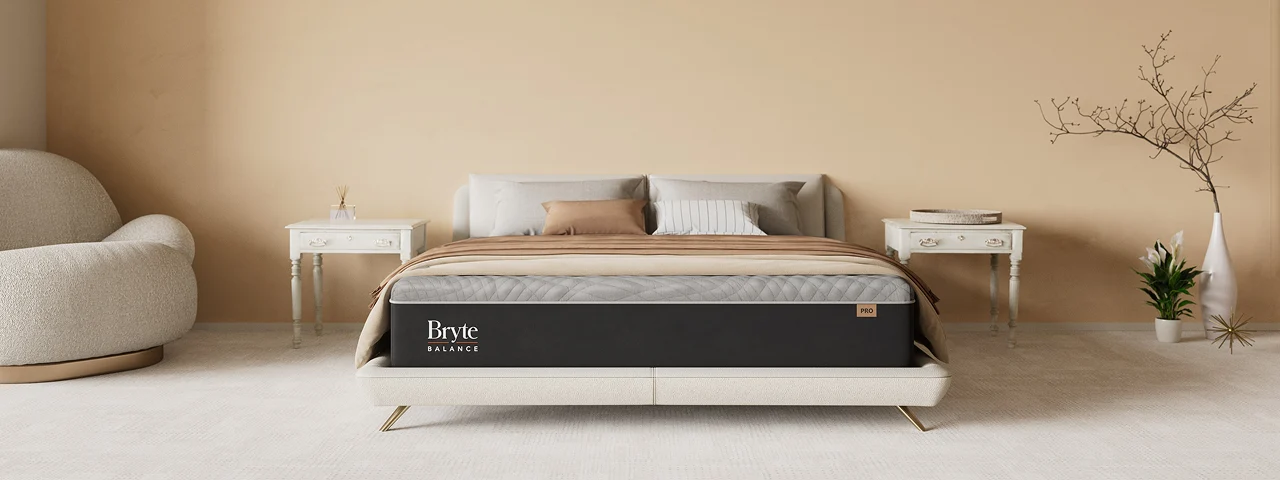Smart Bed vs. Traditional Bed
When it comes to choosing a bed, the options available today can be overwhelming. With advancements in technology, the introduction of smart beds has revolutionized the way we think about sleep. But how do these modern marvels compare to traditional beds? In this article, we will explore the key differences between smart beds and traditional beds, and help you make an informed choice for better sleep.
Understanding Smart Beds
Smart beds incorporate technology to help you sleep better. Some smart mattresses can make adjustments to the temperature and firmness while you sleep, while others can even help with snoring. Some additional features include sleep tracking, wireless connectivity, and voice control.
One of the main benefits of smart beds is the personalization. You can personalize your specific sleep settings with changes to the firmness, and some smart mattresses allow you to customize the temperature of your bed. When paired with an adjustable base, smart beds even allow you to customize the elevation of your upper and lower body. This can be particularly beneficial for couples who have different sleep preferences or certain health conditions that require specific sleeping positions or temperature control.
Smart beds also often come with sleep tracking capabilities, which can provide valuable insights into your sleep patterns, duration, quality, and can even track your heart rate. This data can help you better understand your sleep patterns and make adjustments to your lifestyle or sleeping environment to optimize your sleep quality.
Traditional Beds: Tried and True Comfort
If you’re reading this article, you’re probably sleeping on a traditional mattress. These beds use a combination of foam layers, latex, or innerspring coils, and come in various levels of firmness or support. While they may not have the high-tech features of smart beds, traditional beds are popular choices for many people due to their comfort, durability, and affordability.
With the variance of materials and quality within the traditional category, there’s a mattress that’s accessible to every budget. Consumers that prefer a simple sleep setup may prefer a traditional bed because they require little maintenance and are available in retail stores.
Comparing Smart Beds and Traditional Beds
Now that we understand the different components of smart beds and traditional beds, here is how they directly compare:
Comfort and Customization
Smart beds offer customizable comfort . Many feature adjustable settings, allowing you to customize the firmness, elevation (if you have an adjustable frame), and sometimes even temperature of your bed to suit your individual preferences. This can be particularly beneficial for those with specific health conditions or sleep preferences. Traditional beds, on the other hand, come in pre-set firmness levels and typically don’t offer customization.
Sleep Tracking and Connectivity
Smart beds often come with built-in sleep tracking capabilities, allowing you to monitor your sleep patterns, including duration, quality, and heart rate variability. This data can help you gain insights into your sleep habits and make adjustments for better sleep. Some smart beds also offer connectivity options, allowing you to sync your bed with other devices, such as smart home systems or fitness trackers. Traditional beds do not typically offer these features.
Technology and Convenience
Smart beds are equipped with advanced technology that can enhance your sleep experience. Some smart beds also come with features such as voice control, allowing you to adjust settings without even getting out of bed. Through Somnify, Bryte synchronizes audio with bed motion to ease you into a calm mental state and help you fall asleep.
Smart Beds: The Future of Sleep
Smart beds are revolutionizing the way we sleep, offering advanced features and technology that go beyond the traditional mattress. By utilizing technology it can adjust various aspects of your sleep, providing personalized comfort and convenience. With advances in artificial intelligence, soon AI-powered sleep coaching may become more prevalent. Users can communicate with their AI sleep coach which uses real sleep data to offer specific recommendations. For instance, the coach might use your sleep data to detect how restless you were during certain hours of the night and suggest a different bedtime to better optimize your sleep quality.
Sleep Tracking and Monitoring
One of the key features of a smart bed is its ability to track and monitor your sleep patterns. With built-in sensors, these beds can track important metrics like your heart rate, breathing, movement, and sleep duration, providing detailed insights into your sleep quality. For many smart mattresses, this information can be synced with a companion app on your smartphone, which allows you to review your sleep data and make adjustments to improve your sleep hygiene.
When it comes to choosing between a smart bed and a traditional bed, each option has their own unique advantages. Many smart beds offer advanced sleep tracking, personalized comfort settings, and additional features like smart alarms and health monitoring, making them a great option for those who value cutting-edge technology and customization. On the other hand, traditional beds are known for their proven comfort, affordability, and accessibility, making them a popular choice for many sleepers who prefer simplicity and ease of use.
It's important to consider various factors like personal preferences, budget, familiarity with technology, and health considerations when making a decision on the type of bed that best suits your needs for a good night's sleep.







